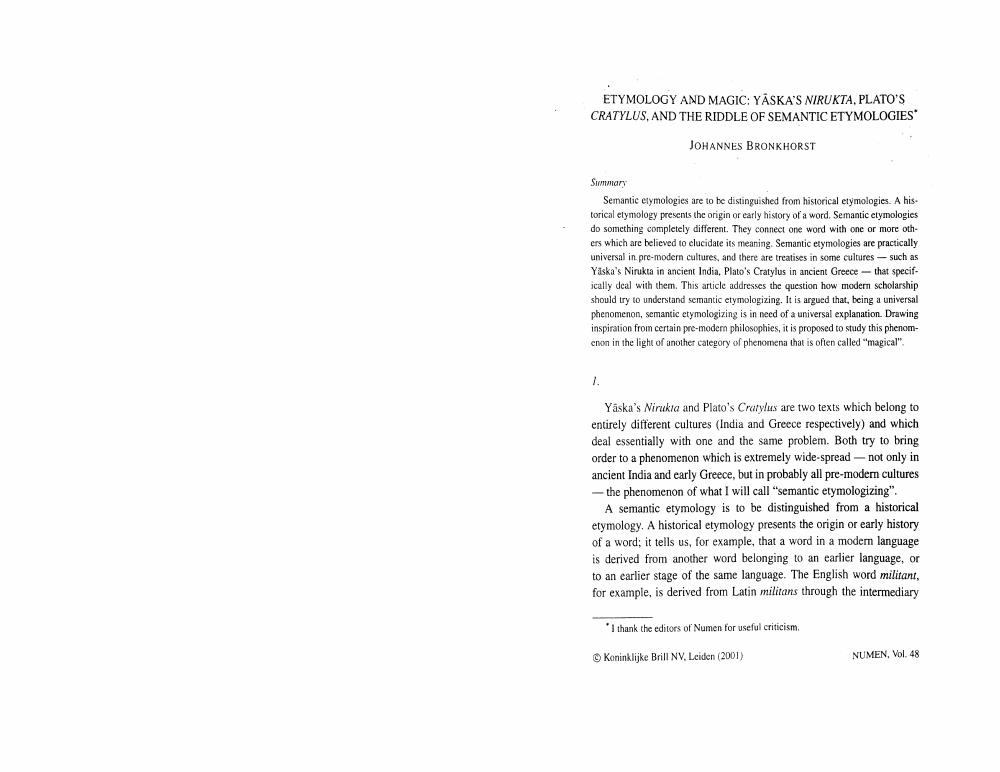Book Title: Etymology And Magic Yaskas Nirukta Flatos Cratylus And Riddle Of Semanticetymologies Author(s): Johannes Bronkhorst Publisher: Johannes Bronkhorst View full book textPage 1
________________ ETYMOLOGY AND MAGIC: YASKA'S NIRUKTA, PLATO'S CRATYLUS, AND THE RIDDLE OF SEMANTIC ETYMOLOGIES* JOHANNES BRONKHORST Summary Semantic etymologies are to be distinguished from historical etymologies. A historical etymology presents the origin or early history of a word. Semantic etymologies do something completely different. They connect one word with one or more others which are believed to elucidate its meaning. Semantic etymologies are practically universal in pre-modern cultures, and there are treatises in some cultures - such as Yaska's Nirukta in ancient India, Plato's Cratylus in ancient Greece - that specifically deal with them. This article addresses the question how modern scholarship should try to understand semantic etymologizing. It is argued that, being a universal phenomenon, semantic etymologizing is in need of a universal explanation. Drawing inspiration from certain pre-modern philosophies, it is proposed to study this phenomenon in the light of another category of phenomena that is often called "magical". 1. Yaska's Nirukia and Plato's Cratylus are two texts which belong to entirely different cultures (India and Greece respectively) and which deal essentially with one and the same problem. Both try to bring order to a phenomenon which is extremely wide-spread - not only in ancient India and early Greece, but in probably all pre-modern cultures -the phenomenon of what I will call "semantic etymologizing". A semantic etymology is to be distinguished from a historical etymology. A historical etymology presents the origin or early history of a word; it tells us, for example, that a word in a modern language is derived from another word belonging to an earlier language, or to an earlier stage of the same language. The English word militant, for example, is derived from Latin militans through the intermediary "I thank the editors of Numen for useful criticism. Koninklijke Brill NV, Leiden (2001) NUMEN, Vol. 48Page Navigation
1 2 3 4 5 6 7 8 9 10 11 12 ... 29
